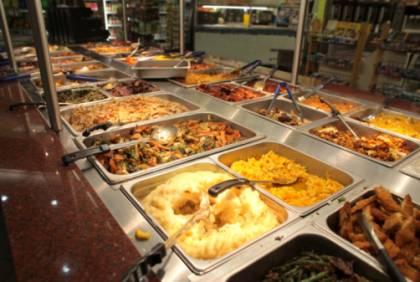FEMALE MUSCLE


Eating Off Season
Q. What’s your off-season diet, and do you give yourself some freedom or still keep strict but just add more calories with carbs and fats?
A. Of course a competitive bodybuilder is always in training. We may take a strategic rest, whether mental or physical, or plan on adding or losing weight at various times of the year, but if you’re looking to improve each year, you need to have a plan.
Personally, I believe that for any competitive bodybuilder, and in particular for a female bodybuilder, it’s important to use the off-season to do a couple things. First, get back to a healthy body-fat level. By healthy, I mean athletic and lean but not so lean that you’re constantly hungry or deprived. I don’t believe your whole life should revolve around food (you need to be flexible and have a life), but you should also plan to continue to eat every three hours with a healthy balance of carbs, protein, and fat. You should feel well-fed, healthy, and energetic. Second, the off-season is a time to analyze any weak points and use your diet and training strategy to address these points. If you eat too little, all the training in the world will not add any muscle. Getting the right nutrition is essential. If you eat too much, you’re setting yourself up for a torturous season of dieting next time round!
For me, I find that gaining 15 to 20 pounds over the first 6 months of my off-season is about right. If I have a short off-season, it may be less. Of course I’m 180 pounds onstage, so 20 pounds isn’t that much in comparison to my total weight! For a smaller person, this number may change. I don’t like to gain more than 2 to 3 pounds each month, making sure that the weight I gain is more likely to be muscle as I continue to train hard. I only eat what I consider “shit” food a couple nights after the show, and after that, I transition right back to healthy foods but add items such as avocado, natural cheeses, low-sugar sauces, whole eggs, lean beef, and any whole-grain products such as bread, wraps, organic granola, cereals and bars. For many years, I wrote down everything I ate (on and off-season), so I have a good idea what to eat now, even without measuring. I constantly take an assessment of how I’m looking and what my goals are, and if at any point I feel I’ve gained too much, I just cut back slightly in the fats and carbs for a couple of weeks and continue with my training. It’s important to remember that the food we eat not only changes how we look but also is essential for our long-term health and disease prevention. The off-season is time to get more balance back and let your body rejuvenate itself.
The confidence I have with my eating at this point is in large part due to the many years that I’ve been even more meticulous than I am now. For anyone who may be a little less certain about what to do in the off-season, I would recommend working with a coach who teaches you how to transition to the off-season and enjoy a wider range of foods that are healthy for you and help your body heal and grow. The most important thing to remember is that everything you do today is an investment in how you look next year. Be aware, but enjoy your life.

